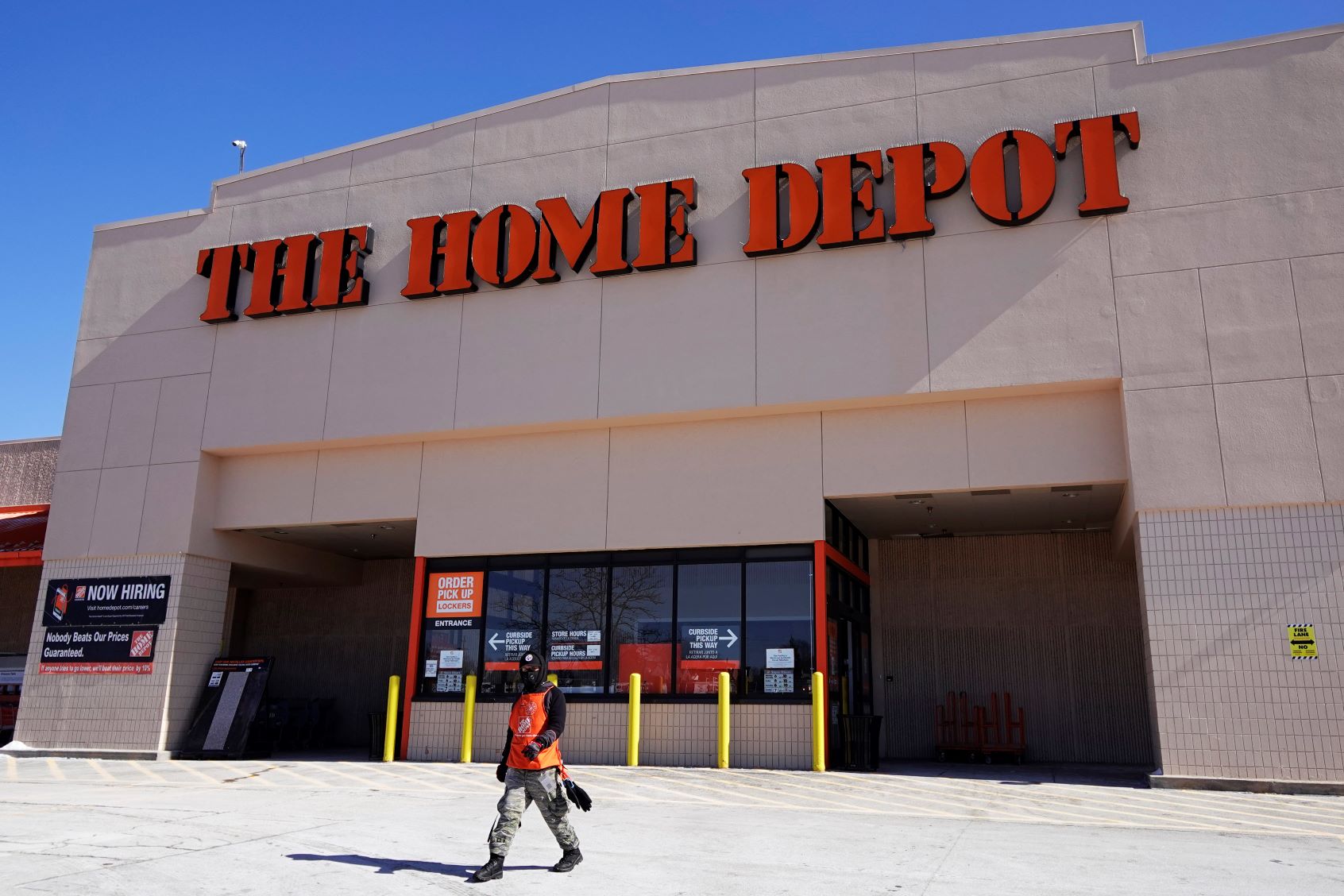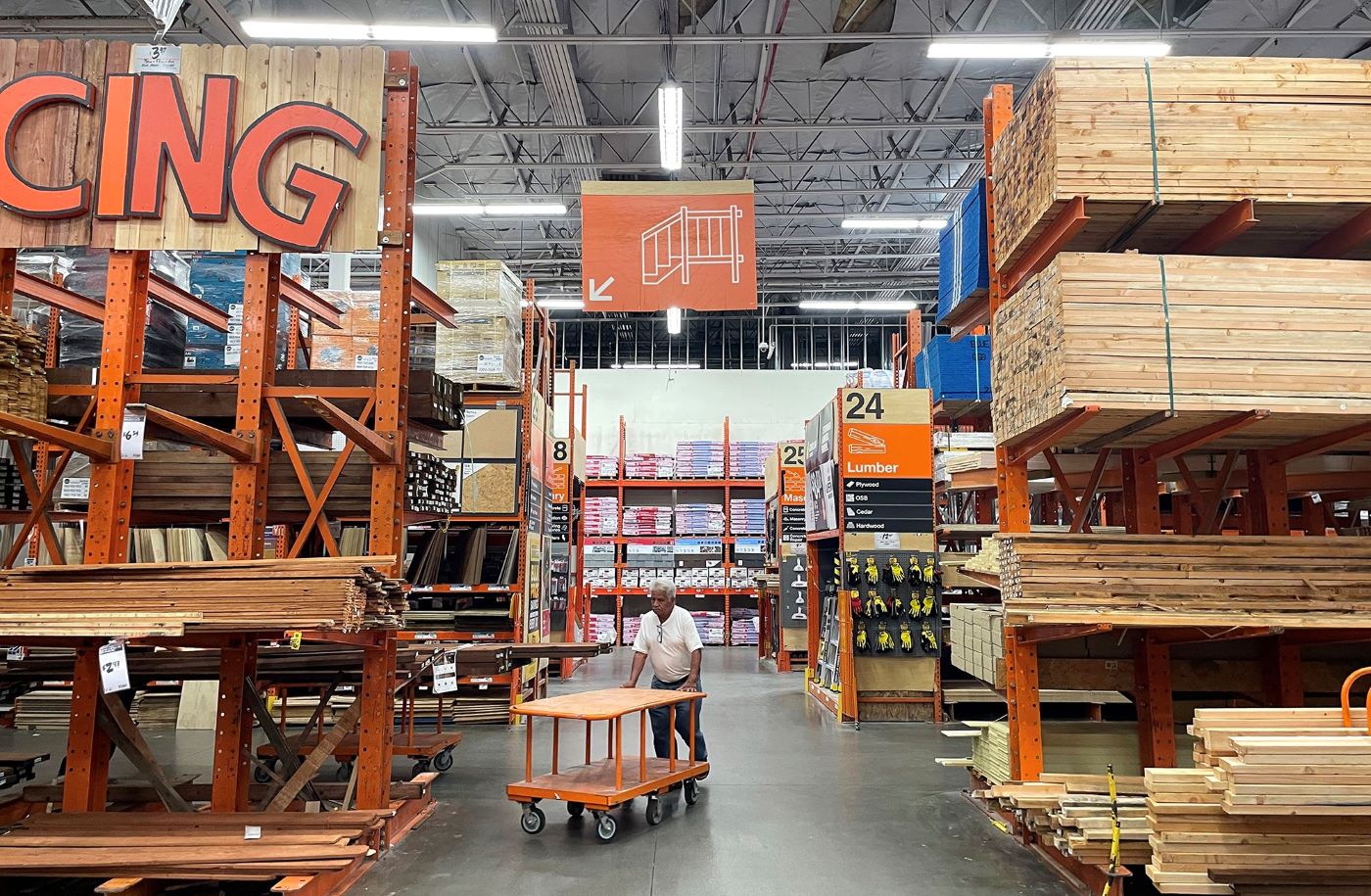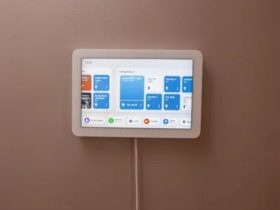On Tuesday, Home Depot announced a nearly 3% decrease in quarterly sales compared to the previous year, yet it exceeded Wall Street’s expectations for both earnings and revenue despite subdued demand.
The home improvement giant projected a roughly 1% increase in total sales for fiscal year 2024, inclusive of an extra week, slightly below the 1.6% growth anticipated by Wall Street analysts. Additionally, Home Depot plans to open approximately twelve new stores during the year.
Chief Financial Officer Richard McPhail attributed the decline in demand for home improvement products throughout the year to consumers allocating more of their spending towards experiences.

He further noted that declining lumber prices and increasing interest rates adversely impacted the company’s performance.
McPhail expressed optimism regarding Home Depot’s potential to resume growth, stating, “Our market is on its way back to normal demand conditions… We’re not quite there yet, but the pressures we saw in 2023 are receding.”
Here’s a breakdown of the company’s performance for the three-month period ending Jan. 28, compared to Wall Street expectations:
- Earnings per share: $2.82 vs. the expected $2.77
Revenue: $34.79 billion vs. the expected $34.64 billion
In premarket trading, Home Depot shares dropped by nearly 2%. For the fiscal fourth quarter, net income declined to $2.80 billion, or $2.82 per share, from $3.36 billion, or $3.30 per share, in the previous year. Net sales also decreased from $35.83 billion in the corresponding period.
Over the past year, Home Depot has encountered a challenging sales environment following a period of heightened demand during the pandemic, when consumers invested more time and money into home improvement projects.
The company has observed a slowdown in consumer spending, particularly on major purchases, as some households delay discretionary spending due to inflation, defer home purchases amid higher interest rates, or prioritize experiences over goods.

McPhail and CEO Ted Decker characterized 2023 as a “year of moderation” following the exceptional gains during the pandemic.
McPhail noted that customers continue to postpone larger projects, especially those necessitating loans, due to increased borrowing costs.
However, he highlighted consistent sales throughout the fourth quarter, with the exception of a January decline attributed to adverse weather conditions, which did not influence the company’s outlook for the coming year.
Both average ticket and customer transactions decreased in the fourth quarter compared to the previous year, with the average ticket dropping from $90.05 to $88.87, reflecting a more typical pricing environment, according to McPhail.
As of Friday’s close, Home Depot shares had risen by nearly 5% year-to-date, roughly aligning with the S&P 500’s gains during the same period. With shares closing at $362.35 on Friday, Home Depot’s market value stood at approximately $360 billion.







Leave a Reply